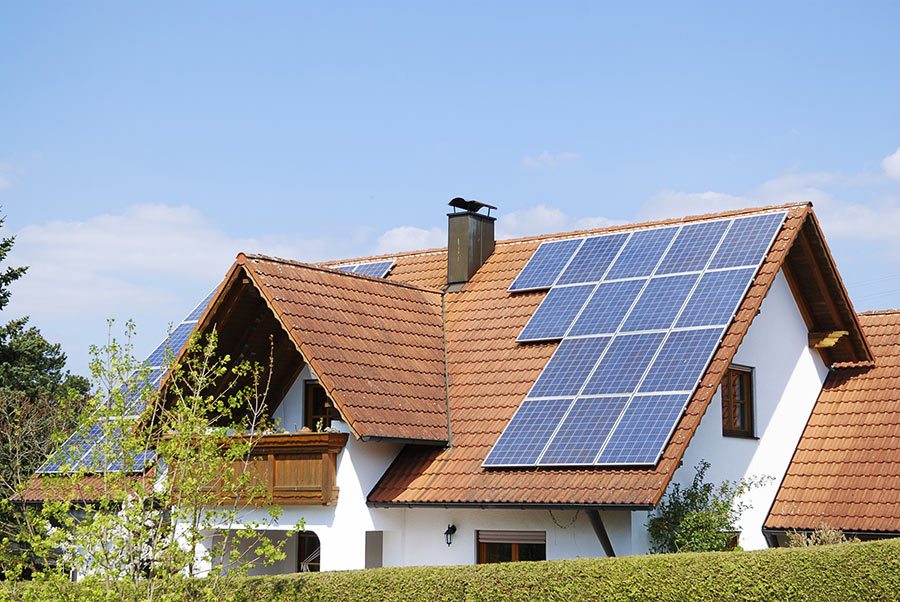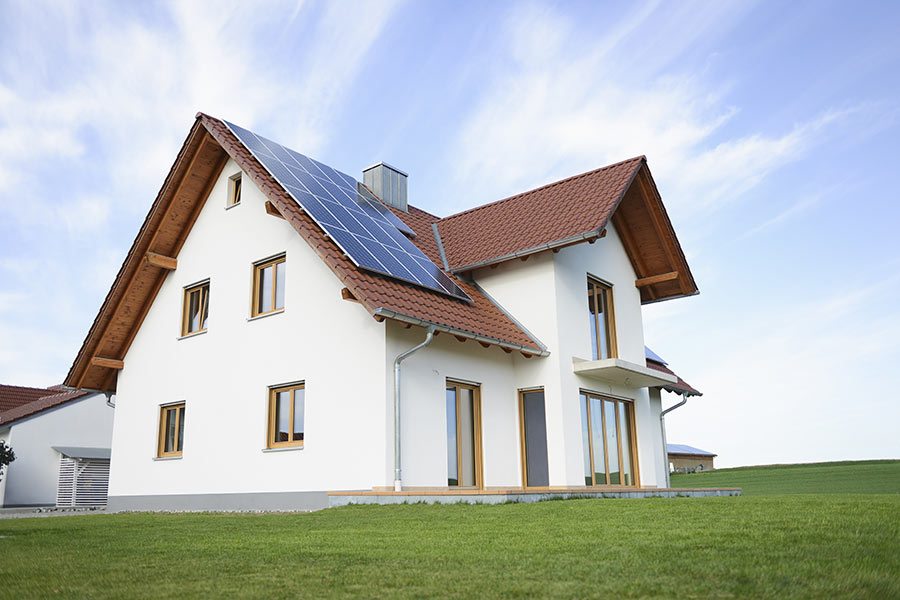What to consider before making the decision to install solar power.
What are the types of solar panels?
Firstly, welcome to Solar PV. The most popular and recognised panel type that produces electricity for your home. Secondly, introducing Solar Thermal. This uses the sun’s power to produce hot water for your home. The characteristics of both panels are below:
Solar Rooftop Panels PV – Home Electricity
- Reduce your yearly electricity bills by up to 50%
- Earn £ through the Feed In Tariff scheme for 20 years
- Lifespan of 20 years+
- Environmentally friendly – Offsets between 1,580kg-1,900kg of CO2 per year
- Produces electricity rain or shine
- Install solar storage batteries as part of the panel system, to provide green energy at night and extra savings.

Solar Thermal – Hot Water Supply
- Produces 50% of yearly hot water with one panel
- Earn through the Renewable Heat Incentive for 7 years
- Lifespan of 20 years+
- Environmentally friendly – Offsets between 270 kg – 650 kg of CO2 per year
- Provides all of your hot water needs in the summer
- Works with conventional boilers and hot water tanks, so water can be heated further when it is needed
Earn £ from government incentives?
By installing solar panels you are eligible to apply for government incentives and can get paid for using and producing energy. This is called a “feed-in tariff” (FIT). The scheme works by paying you a set amount for each unit (kilowatt hour or kWh) of electricity you generate, this is called a “generation tariff” and the rates at which you are paid depend on the following:
- The size of your solar panel system
- The technology you have installed
- Installation date
- How energy efficient your home is
Export Tariff: your energy supplier will pay you a further rate for each unit you export back to the electricity grid, so you can sell any electricity you generate but don’t use yourself. At some stage smart meters will be installed to measure what you export, but until then it is estimated as being 50 per cent of the electricity you generate (only systems above 30kWp need to have an export meter fitted, and a domestic system is unlikely to be that big). You will also save money on your electricity bills for the power you generate.
Renewable Heat Incentive: also offers payments like the FIT but over 7 years, If you have the space, we recommend applying for the feed-in tariff and the renewable heat incentive to boost your energy savings.

How much do solar panels cost?
Solar panels has decreased in cost by approximately 72% over the last few years. The cost has been driven down so much that the housing association have installed solar panels on their newest projects as it is a great investment for the company and can be massively beneficial to their residents through energy savings.
The rising cost of gas and electricity coupled with the British people becoming more environmentally conscious is causing an increasing number of homeowners to ‘go green’. With this in mind, installing solar panels is likely to be an investment that will add a good amount of value to a property in the future and add to the saleability of your property.
Residents who rely on solar power as their energy source can save up to 50% on their yearly electricity bills through Solar PV and reduce their hot water energy usage by up to 50% annually though Solar Thermal panels. This is a huge saving; coupled with at least £150 paid by the incentives schemes, panels make a big difference in terms of annual energy costs.
You should be aware that government incentives have decreased in attractiveness since initially launched. However, when considering the cost of panels has reduced by a 72% in the past few years, the decreased incentive values are outweighed.